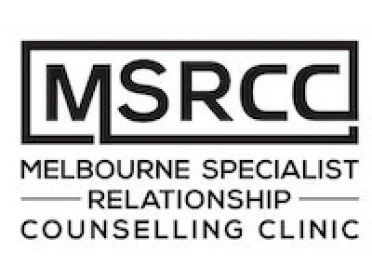
Everything can feel up in the air when a relationship ends. Even though the separation was mutual or even anticipated, the shift can continue to leave you feeling unsettled, overwhelmed or uncertain of what to do next.
You may be mourning your partner, the life you shared, or just the everyday connection that at one time felt so familiar. After the relationship ends, a lot of people begin to question who they are. Coping with marital separation isn’t simply about moving on – it’s about locating your feet once more in a world which feels different.
We at MSRCC know that separation is a deeply personal experience. There is no one proper way to feel and no one set time frame for healing. No matter what stage you’re at, you don’t need to navigate it all by yourself.
What Is Separation Anxiety from a Spouse?
When a long-term relationship ends, some people experience what is known as separation anxiety from a spouse. This can be more than just missing someone. It may bring a sense of panic or restlessness that is hard to explain or manage.
You might notice:
- A strong urge to keep in touch, even when it is painful
- Trouble sleeping, eating, or staying focused
- A heavy feeling of worry or loneliness
- Fear about how to manage life without your partner
These feelings are especially common if your partner was your main emotional support. Sometimes, this kind of anxiety is also linked to earlier experiences with loss or disconnection. It is not just about this breakup; it may be stirring up older memories too.
Emotional Impact of Separation and Divorce
There is no one way to feel when a relationship ends. Some days might bring relief, others sadness or confusion. It is completely normal to shift between emotions.
You might feel:
- Sad or unsure about what went wrong
- Guilty, especially if children are involved
- Frustrated or angry
- Disconnected from who you were before
- Unsure about the future
These reactions do not mean something is wrong with you. They are signs that something meaningful has changed. Big changes take time to make sense of, and it is okay to feel like you are still catching up.
Coping with Marriage Separation in the Early Days
In the beginning, it is often just about getting through one day at a time. You do not need to have it all figured out.
Some gentle steps that might help:
- Keep a simple routine if you can: wake, eat, move, rest
- Talk to someone who feels safe, whether that is a friend or a professional
- Give yourself permission to limit contact with your ex if it adds more stress
- Hold off on big life decisions while emotions are still raw
- Do small things that feel kind to yourself, even if it is just a walk or a quiet moment
If the relationship ended after a long period of tension, marriage counselling may still be helpful. It can offer space to process what happened, especially if children or shared responsibilities are still part of the picture.
Coping with Separation and Divorce Over Time
As the initial shock starts to fade, there is often a slow shift from surviving to rebuilding. That process will look different for everyone, and that is okay.
Over time, you might begin to:
- Reconnect with parts of yourself that were put on hold
- Accept that healing comes in waves
- Set boundaries with your ex that support your wellbeing
- Reach out to a counsellor or therapist, even if things feel mostly stable
At MSRCC, we support people at every stage of separation. Whether you are looking for individual therapy or counselling for couples, our focus is on helping you feel more grounded, clear, and supported as you move forward.
When to Consider Professional Support
Some emotional ups and downs are to be expected. But if things start to feel too heavy to carry on your own, it may be time to talk to someone.
It might help to reach out if:
- You feel anxious, low, or stuck most of the time
- You are struggling to sleep, eat, or cope with everyday tasks
- You feel isolated or withdrawn from the people around you
- You are overwhelmed by guilt, fear, or confusion
- You notice old trauma or painful memories resurfacing
Seeing a therapist is not about fixing something that is broken. It is about having a safe place to talk and feel supported while you work through what matters most. At MSRCC, we offer therapy that meets you where you are, without judgment or pressure.
A Gentle Reminder: You Do Not Have to Do This Alone
Whether you are experiencing separation anxiety from a spouse, in the early stages of coping with marriage separation, or slowly finding your way through coping with separation and divorce, please know this: it is okay to take your time.
You are allowed to grieve. You are allowed to feel unsure. And you are allowed to ask for help.
If you would like to speak with someone or find out more about how we can support you, contact us. At MSRCC, we offer kind, thoughtful care to help you feel more like yourself again, one step at a time.


